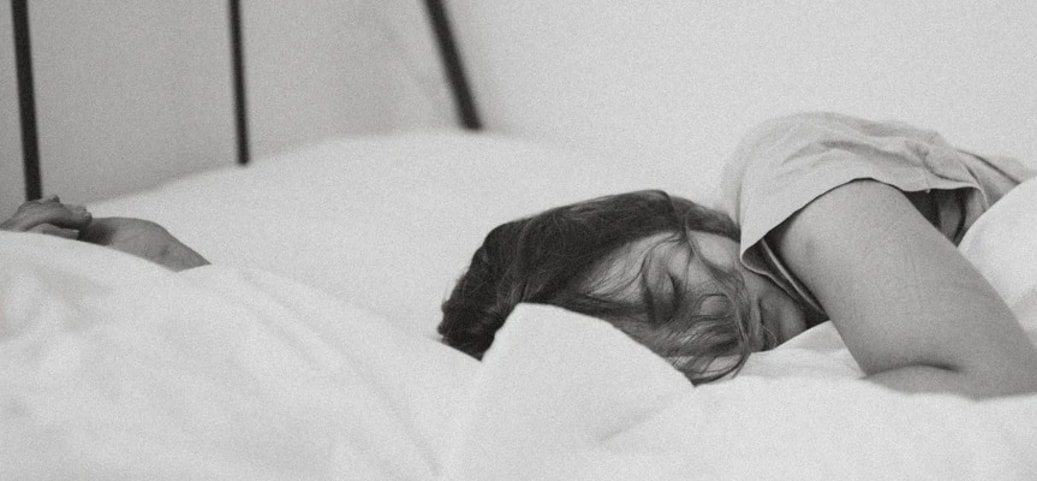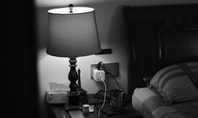Sleep deprivation: common symptoms following sleepless nights
On average, we spend almost 3,000 hours a year sleeping. During this time, our body recuperates and our brain processes the experiences we have had during the day. But while most of us sleep blissfully through the night, others don’t get a wink of sleep: their brains seem unable to switch off, they are restless and a good night’s sleep is impossible. Here we explain which symptoms occur with chronic sleep deprivation, when too little or poor sleep can become dangerous and make us ill, and which tips can help improve our sleep hygiene.
by Florijeta
June 7, 2024•4 min reading time

Overcoming sleep deprivation: Tips for more rest and regeneration.
Table of Contents
A question of definition: what is sleep deprivation?
Am I suffering from sleep deprivation? Typical symptoms of sleep deprivation and lack of sleep
• Physical symptoms of prolonged sleep deprivation
• Common psychological symptoms of insufficient sleep
Putting an end to sleep deprivation: five tips for improved sleep hygiene
• Tip 1: create a cosy atmosphere
• Tip 2: take a shower or bath and wear comfortable sleepwear at night
• Tip 3: banish screens from the bedroom
A question of definition: what is sleep deprivation?
Those who suffer from sleep deprivation are less productive and constantly tired during the day. However, chronic sleep deprivation not only describes a lack of sleep, but also other sleeping disorders that occur over a period of at least six months.
As well as a lack of sleep, an unfavourable distribution of sleep is also defined as sleep deprivation. This occurs when we interrupt our body’s natural biorhythm, owing to work commitments for example. As the sleep hormone melatonin is formed when it is dark, we often sleep less well during the day.
Poor sleep quality due to a lack of sleep at night is also described as sleep deprivation, as we usually wake up more frequently during the day and are therefore unable to experience every stage of sleep. This disturbed sleep is extremely unhealthy in the long term, as we do not sleep deeply and our brain and body are unable to fully switch off and recuperate.
Am I suffering from sleep deprivation? Typical symptoms of sleep deprivation and lack of sleep
Anyone suffering from chronic sleep deprivation may notice both physical and mental changes in themselves. These are not only extremely debilitating, but can also have a negative impact on human interaction. Too little sleep can also lead to more serious symptoms.
The following paragraphs explain the typical symptoms of sleep deprivation and lack of sleep. In order to be described as suffering from severe sleep deprivation and be able to justify seeking medical assistance, those affected do not necessarily have to display all these symptoms.
Physical symptoms of prolonged sleep deprivation
Have you ever been told you look tired after a single night on the town? Then you can well imagine that people with chronic sleep deprivation look even more fatigued. The visual and physical symptoms of sleep deprivation and lack of sleep include:
Sallow, pale and dull skin with a greyish hue
Dark, often red and blue bags under the eyes
Dry, red and bloodshot eyes
Chapped lips
Frequent yawning
Slow, listless movements
Unsteady gait
Variable pupil size
Increased sensitivity to cold
Although the physical signs of sleep deprivation are often disruptive for those affected, they only become really dangerous in the event of mental changes caused by chronic sleeping disorders. If these are severe, they may even limit our sensory perception!
Common psychological symptoms of insufficient sleep
The psychological effects of chronic sleep deprivation often consist of one or more of the following symptoms:
Poor concentration
Irritability
Dissatisfaction
Mood swings
Mental and physical exhaustion
Confusion, sensory disorientation
Momentary nodding off
If you are suffering from chronic sleep deprivation that is also affecting your mental state, it may be useful to seek mental health support, in addition to visiting a specialist to determine and treat the cause. A constant feeling of exhaustion and reduced performance frequently result in anxiety disorders and even depression.
As chronic sleep deprivation often also has a negative impact on human interaction, it may contribute to declining performance, especially at work. Signs such as constant yawning, difficulty concentrating and even momentary nodding off not only make a bad impression, but can also be extremely dangerous, when driving for example.
We therefore recommend consulting a doctor or a sleep clinic that will investigate the causes of your sleep deprivation and provide appropriate treatment and/or therapies. Meanwhile, here are five simple tips you can follow to help you create the most relaxing sleep environment possible and get a good night’s sleep.
Putting an end to sleep deprivation: five tips for improved sleep hygiene
Sleeping disorders can often be remedied or at the very least improved by making simple changes to your bedtime routine. So-called sleep hygiene plays an important role in this. Although clean bed linen and pyjamas also contribute to a comfortable and restful night’s sleep, sleep hygiene refers to a set of rituals that are repeated every night before going to bed. They tell your body, ‘It’s bedtime soon! You can start to relax.’
Tip 1: create a cosy atmosphere
A peaceful atmosphere provides the necessary relaxation during the evening. If you enjoy watching TV or using your phone before going to bed, try to avoid too much stimulation during this time by dimming the lights and lowering the volume.
Filling the room with a pleasant scent during the evening can also have a calming effect. Choose natural fragrances that have a relaxing effect and do not give you headache. Essential lavender or chamomile oils that you spray on your pillow are very popular.
Tip 2: take a shower or bath and wear comfortable sleepwear at night
Even if you’ve already worn comfortable clothing during the day, an evening bathroom routine and clean sleepwear is another ritual that will make you feel more restful. Brushing your teeth and taking a shower or bath will wash away the stress of the day and simply make you feel more relaxed. CALIDA also has a huge selection of sustainable pyjamas and beautiful nightdressesthat will ensure you get a good night’s sleep, thanks to their unique comfort and temperature-regulating properties.
Here is a selection of cosy and sustainable nightwear:
Tip 3: banish screens from the bedroom
Screens, be it on your mobile phone or TV, can have a huge impact on sleep. It is therefore advisable to banish screens from the bedroom or at the very least avoid using your mobile phone in bed. According to a study by Harvard University, blue light emitted by screens in the bedroom meant that subjects only felt tired for an average of three hours, compared with those who were not subjected to blue light.
Tip 4: create positive sleep associations
To improve sleep hygiene and create positive sleep associations, you should establish evening rituals that have nothing to do with screens or other powerful stimuli. These could include meditation, reading, drinking tea or solving crossword puzzles. It is important to choose a ritual that you enjoy and that you can look forward to every evening.
Tip 5: write down your thoughts before going to bed
If spiralling thoughts keep you awake at night or you harriedly start making plans for the following day, you should keep a notebook within reach next to your bed. So just before going to bed, you can write down everything that is bothering you or your plans for the following day. Once you have transferred these thoughts to paper, you can put them out of your mind and no longer worry about forgetting them.
Discover more interesting blog posts:


